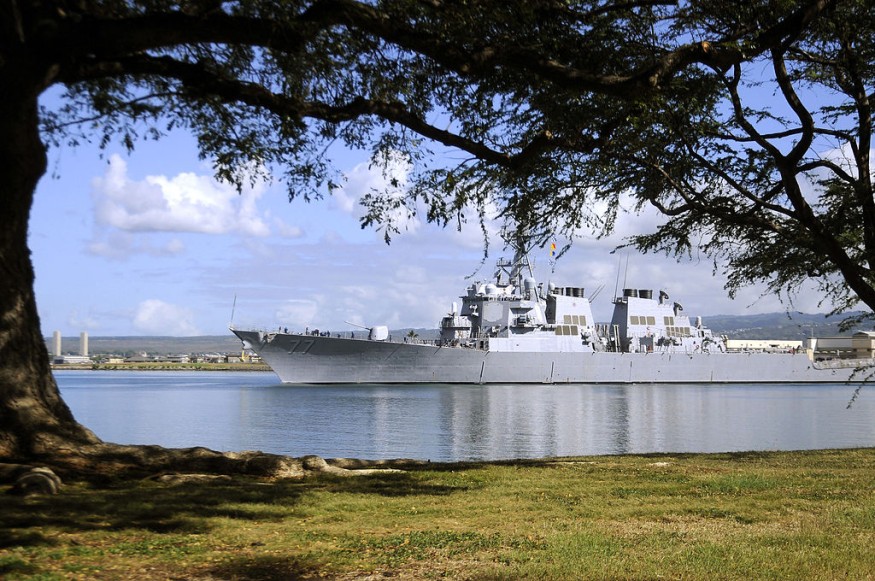Navy Sailor Shot Himself After 10-Hour Standoff at Hawaii Resort

The Honolulu Medical Examiner's office identified Monday the U.S. Navy sailor who shot and killed himself at a luxury resort in Hawaii after a 10-hour standoff with police over the weekend.
The Navy sailor was identified as Russell Cruz, 40, of Kailua, Hawaii, who died of a gunshot wound to the head inside a Kahala Hotel & Resort's room in Honolulu, Hawaii early Sunday morning.
ABC News Go reported the Navy was still notifying the relatives on Monday. Cmdr. Cindy Fields, a spokesperson for the U.S. Pacific Fleet submarine force, confirmed that a Sailor assigned to the Pacific Submarine Force has died.
"We are deeply saddened by the loss of a shipmate. Our thoughts and condolences go out to the Sailor's family and friends," Fields said in a statement. The recent suicide of Russell Cruz made him the state's second submariner to kill himself in the past month.
The Suicide Incident in Hawaii
Honolulu Police Department Captain Brian Lynch said that a 911 call came at 5:40 p.m. on Saturday, reporting that shots were fired at The Kahala Hotel & Resort.
Lynch noted that about five shots were fired from a fourth-floor guest room. He said that 18 officers responded and immediately started evacuating the adjoining rooms and guests on the fourth floor, according to a KITV report.
A SWAT team eventually entered the room and found the Navy sailor dead. Lynch said no one outside the room was hurt.
Meanwhile, a civilian said that he had just parked at the hotel to meet up with friends when an officer started yelling from a balcony to get inside. Corey Funai feared that there was a mass shooting.
"With everything in the news on the mainland, I thought it might be something like that," he said in a report. Funai added that that does not happen in Hawaii very often.
Honolulu police spokeswoman Sarah Yoro did not release further details on Monday and only said that police already gave an initial statement at the scene.
Suicides of Navy Sailors
Recently, Torpedoman's Mate 3rd Class Petty Officer Manuel Hernandez Julian Jr., 23, died of a self-inflicted gunshot wound at Pearl Harbor Naval Shipyard in Hawaii. Julian's death was just three weeks before Russell Cruz's death.
The Navy was rethinking how it addresses suicides after two years of rising rates in the service, according to a USNI News 2019 report.
In December 2019, U.S. Navy sailor Gabriel Antonio Romero shot three civilian shipyard workers. He killed them at the Pearl Harbor military base before killing himself.
Romero was from San Antonio, Texas, and his job at the time was to stand watch and provide security for the submarine USS Columbia, according to a Daily Mail report.
Romero was reportedly unhappy with his commanders and had been undergoing counseling and anger management sessions.
Capt. Tara Smith, a subject matter expert assigned to the Navy's Suicide Prevention Branch, said that preventing suicide is not just about providing more mental health services.
"The primary prevention is really about changing the culture in the Navy. It's about seeking help and it's ok to have problems," Smith said in a report.
Smith added that the main reason that sailors do not seek help is that there is a desire in the fleet to handle it themselves and figure it out on their own.
READ MORE: 2 US Marine Corps Officers Dead After Helicopter Crashes in California During Training Exercise
WATCH: Navy Suicide Prevention Month: It's About Being There for "Every Sailor, Every Day" - From U.S. Navy
Subscribe to Latin Post!
Sign up for our free newsletter for the Latest coverage!














